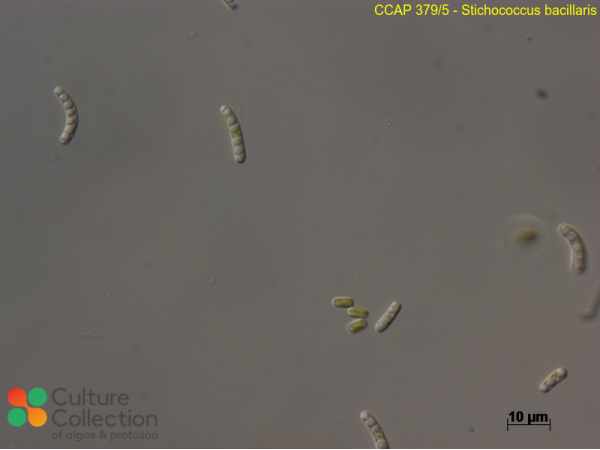(Bold text = submission by CCAP staff or collaborators)
Note: for strains where we have DNA barcodes we can be reasonably confident of identity, however for those not yet sequenced we rely on morphology
and the original identification, usually made by the depositor. Although CCAP makes every effort to ensure the correct taxonomic identity of strains, we cannot guarantee
that a strain is correctly identified at the species, genus or class levels. On this basis users are responsible for confirming the identity of the strain(s) they receive
from us on arrival before starting experiments.
For strain taxonomy we generally use AlgaeBase for algae and
Adl et al. (2019) for protists.
| Attributes | |
| Authority | Nägeli 1849 |
| Isolator | Parke (1949) |
| Collection Site | off Plymouth, Devon, England, UK |
| Climatic Zone | Temperate |
| Notes | not toxic to fish |
| Axenicity Status | Bacteria and other organisms present |
| Area | Europe |
| Country | UK |
| Environment | Marine |
| GMO | No |
| In Scope of Nagoya Protocol | No |
| ABS Note | Collected pre Nagoya Protocol. No known Nagoya Protocol restrictions for this strain. |
| Collection Date | c 1949 |
| Original Designation | Plymouth 82 |
| Pathogen | Not pathogenic: Hazard Class 1 |
| Strain Maintenance Sheet | SM_MarineGreens.pdf |
| Toxin Producer | Not Toxic / No Data |
| Type Culture | No |
| Taxonomy WoRMS ID | 145715 |
| Equivalent Strains | Plymouth 82 |
CCAP 379/5
Stichococcus bacillaris
- Product Code: CCAP 379/5
- Availability: See Availability/Lead Times


